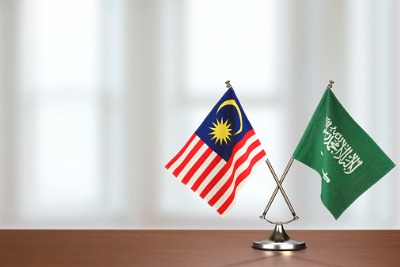
Halal Certification in the U.S.: Opening Doors to Southeast Asia & the Middle East
Halal certification is no longer just a label—it is a powerful key to unlocking high-growth markets like Southeast Asia and the Middle East. For U.S. food producers targeting these regions, Halal certification signals trust and credibility, both of which are non-negotiable in these fast-developing economies. Let’s dive into the steps U.S. businesses can take to succeed in Halal markets.
The Growing Demand for U.S. Halal Products
Countries like Saudi Arabia and Malaysia are seeing a rising demand for high-quality, Halal-certified U.S. products. Southeast Asia’s growing middle class has increased purchasing power and a strong appetite for imported Halal goods. However, U.S. exporters must overcome key challenges to tap into these markets.

-
Inconsistent Halal Certification Standards
A major challenge is knowing which Halal certifications are globally recognized. For instance, Malaysia’s JAKIM only accepts certifications from bodies it officially approves, while GCC countries like Saudi Arabia and the UAE demand certifications from trusted organizations. Without the right certification, U.S. products may be rejected at ports or denied entry. Partner with internationally recognized U.S.-based Halal certifiers such as Islamic Services of America (ISA) to ensure your products meet global standards and are accepted in key export markets.
-
Labeling & Traceability Issues
Countries like Indonesia now require a clear traceability chain for Halal compliance—from farm to table. Just stamping "Halal" isn't enough. Importers want to ensure authenticity and transparency. Implement traceability systems that ensure transparency at every step of the process. An internal audit and clear record-keeping will keep your products compliant with international Halal standards.
-
Cultural Sensitivity
Halal isn’t just a “checkbox” for many international buyers; it’s a deeply sacred practice. U.S. brands must understand and respect the cultural significance of Halal standards to build trust and avoid damaging relationships in Muslim-majority countries. Educate your team on the cultural and religious significance of Halal standards, especially handling ingredients like alcohol, animal enzymes, and cleaning materials. Cultural awareness fosters trust with international partners.

Strategic Steps to Boost Sales:
● Your Halal Certification Is Your Gateway
Halal certification isn’t just a piece of paper; it is your visa to high-growth markets. Halal-conscious consumers around the world value quality, transparency, and integrity. Get certified with a reputable agency to start your global Halal journey.
● Research Value-Added Products
Don’t limit your offer to just raw meat or frozen chicken. There’s high demand for Halal-certified value-added products like ready-to-eat meals, snacks, baby food, dairy items, and supplements. Southeast Asia’s urbanization and growing consumer demand are pushing the need for simple Halal solutions from trusted global brands. Explore Halal-certified non-meat items. Invest in Research and Development (R&D) to create export-ready products that meet regional taste preferences and dietary habits.
● Partner with Local Distributors
Many U.S. Halal brands struggle to find the right local partners in foreign markets. Without strong distribution networks, even the best Halal-certified products can remain unnoticed on store shelves or never reach them at all. Attend Halal trade expos, connect with regional importers, and collaborate with local business councils. Select distributors who understand Halal logistics and can help navigate government regulations.

Final Thoughts:
With Halal certification meeting U.S. standards, your product can access global markets. The Halal food market is projected to grow tremendously in the next few years, offering U.S. businesses a lucrative opportunity. To break into Southeast Asia or the Middle East, your brand must strictly adhere to Halal principles and regional guidelines. Partnering with globally accredited agencies like the Islamic Services of America (ISA) and ensuring compliance will help you build trust and pave the way for long-term success in global Halal markets.
Islamic Services of America (ISA) is a leading USA based Halal certification and auditing organization serving companies, the community, and the Halal certification industry for over 50 years. Contact ISA at isa@isahalal.com or send your initial inquiry to Halal certify your products at https://www.isahalal.com/contact or visit the ISA website for more information at https://www.isahalal.com/. All images used on our website are exclusively licensed from www.istock.com. Any false claims regarding the ownership of these images will result in legal action and prosecution.